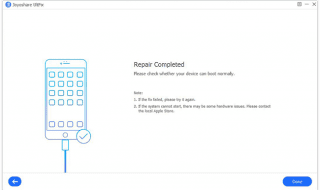
Pregnancy opens a new chapter in the life of all women. As they prepare for a new life growing inside them, ladies have to adjust to various lifestyle changes ranging from following a new diet to making alterations in their workout sessions. While these are welcome changes in a woman’s life, the last thing they want is to get discriminated at their workplace because of pregnancy. Such discriminations occur when employers treat pregnant employees unfavorably or add to their discomfort level by creating a hostile workplace. This practice is common and it’s high time the malicious companies are held liable for such actions.
But you will have to prove how you were treated differently by your employer because of your current health condition. This might be difficult for a pregnant lady to deal with as mental stress is the last thing they need in such a condition. A lawyer’s assistance becomes mandatory in such a phase. If a harmful employment decision was prompted by the pregnancy such as failure to promote, or termination, then you might be able to secure good compensation from your employer. Let’s check out how the experts at Ace Law Injury Firm can help fight for your rights.
Timing Of Events
While proving pregnancy discrimination, it’s necessary to gather evidence that proves that the employer acted against the pregnant employee solely because of their current medical condition. The timing of the events must be such that it can be linked directly with the pregnancy. It becomes easier for a lawyer to prove your claim if the adverse action was taken by the employer immediately after your pregnancy announcement or delivery. Your case will become stronger if the time frame between these two events is shorter.
Policy Violation
Next, your lawyer will take a detailed look at the differences in company policies between the standard procedures of a company and how they are treating a pregnant lady. If they aren’t treating a woman rightfully, then a personal injury lawyer can help create a strong case in your favor.
Evaluating Workplace Performance
The past job performance of an employee can have a big role to play in establishing their claims in a pregnancy harassment case. The employer will try to prove the negative worth of the employee and the lawyer must gather all past performance records of the employee. If the performance of the employee has not been impacted adversely, then your case will get stronger.
Types Of Evidence Which Can Help In Your Pregnancy Discrimination Case

If you want to win a pregnancy discrimination case, then you will have to prove that you were treated differently than other employees and this differential treatment was solely because of your pregnancy or childbirth. This discrimination can be proven in multiple ways depending on the facts involved in your case. Let’s take a look at the two most important types of evidence that can add greater authority to your claims:
Direct Evidence
Direct evidence comprises a clear statement of a discriminatory nature. These statements might be documented comments reflecting the intention to discriminate or policy classifications wherein it is mentioned that pregnancy is a reason for workplace benefit or harm. However, employers don’t often clearly state differential treatment for pregnant workers. This is where circumstantial or indirect evidence can come to your rescue.
Circumstantial Evidence
If the employer doesn’t openly admit to discriminatory intent, the lawyer must find other evidence that can prove that the disputed action was a direct effect of the employee’s pregnancy. Here the lawyer will look at multiple indirect evidences such as the historical background of the organization. They will try to trace similar patterns in the workplace such as the same behaviors with pregnant individuals at the place of work. The sequence of events can also have a big role to play especially if the harassment started at an indisputably short span from the pregnancy reveal or announcement by the employee. Circumstantial evidence can be extremely valuable for comparing you with other non-pregnant individuals to prove the harassment. If your employee has laid you off but retained a similarly qualified non-pregnant employee, then this can be valuable in court.
Conclusion
As per the U.S. Department of Labor, it is prohibited to discriminate against an employee who has recently given birth, is expecting a child, or currently has a medical condition related to childbirth or pregnancy. An employer might terminate a top-performing employee only because of her current condition or choose a non-pregnant candidate for a post despite the pregnant lady being better qualified for a job. As per Title VII of the Civil Rights Act of 1964, it’s prohibited for businesses to make employment decisions based on pregnancy, childbirth, or similar medical status of an employee. These decisions can hurt the termination, hiring, compensation changes, or other job assignments of an employee.




